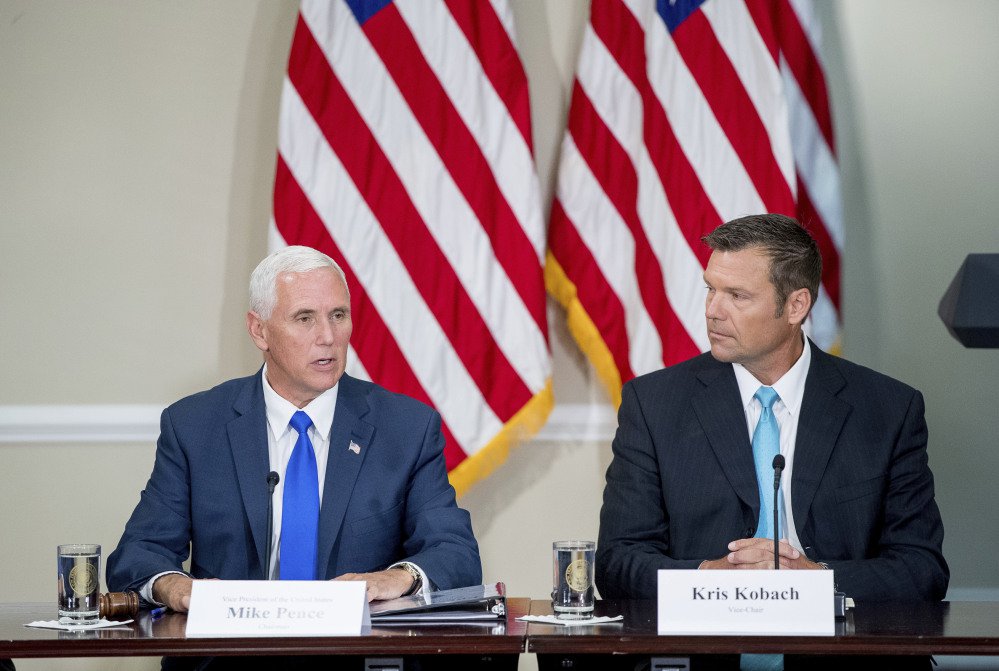After President Donald Trump’s Election Integrity Commission met for the first time Wednesday, Maine Secretary of State Matthew Dunlap, one of four Democrats on the 12-person panel, told the Portland Press Herald: “Let’s see where it takes us before we condemn it.” He’s welcome to withhold judgment, but we’re not going to.
Vice President Mike Pence tried to set a nonpartisan tone for the first meeting of the commission he co-chairs by declaring that the panel has “no preconceived notions or pre-ordained results.” But Pence’s efforts were nuked into orbit when commission co-chairman Kris Kobach said in an interview with MSNBC that “we will probably never know” whether Trump’s 2016 rival Hillary Clinton really won the popular vote, because “even if you could prove that a certain number of votes were cast by ineligible voters, for example, you wouldn’t know how they voted.”
Just to refresh your memory: Hillary Clinton won the popular vote for president by nearly 2.9 million votes. Voter fraud is vanishingly rare: 31 credible allegations nationwide out of over a billion votes cast in all primary, general, special and municipal elections between 2000 and 2014, according to a study by Loyola Law School professor Justin Levitt. So it’s ludicrous to assert that there could have been more than a handful of illegal ballots cast in last fall’s election — let alone millions.
Not that this will stop Kansas Secretary of State Kobach and other true believers from trying to smoke out fraudulent voting. And they’ve used their groundless concerns to justify mandatory photo-ID laws and other regulations that keep likely Democratic voters from casting a ballot.
Now these state-level crusades are going national. Vice President Pence’s office has confirmed to ProPublica that the voter fraud panel intends to run the state voter rolls it has requested against federal databases to check for potential fraudulent registration.
Citing Washington Times coverage, ProPublica reported that the commission may check the state rolls against the federal database of noncitizens. This move bombed in Florida in 2012, according to ProPublica: Many legitimate voters were errantly flagged for having the same names as green card holders, people with temporary visas and undocumented immigrants who’ve been arrested. The effort was scrapped, and Gov. Rick Scott apologized.
The implications of taking this unicorn hunt nationwide are staggering: Thousands more people could end up disenfranchised through no fault of their own. This is an attempt at voter suppression, and there’s no disguising it as anything else.
Send questions/comments to the editors.


